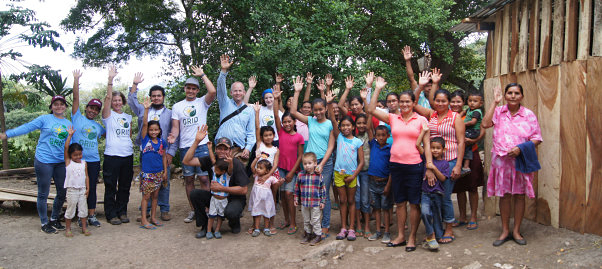Since 2008, GRID Alternatives’ International Program has been working in rural communities throughout Nicaragua to install solar on schools, health clinics, small farms, and homes. Access to clean solar energy impacts education, health, and quality of life for people living in poverty in rural communities. Building upon our work to improve health conditions and well-being of Nicaraguan families, GRID Alternatives launched our first project to construct improved cookstoves in rural households. In November 2017, GRID Alternatives participants embarked on a journey to the community of El Pedregal in the Boaco region of Nicaragua, and worked alongside GRID staff and residents to install improved cookstoves in 17 households that GRID had already installed solar home systems on in 2016.
Even in homes with access to clean energy through solar, the kitchen is a place where families are still exposed to harmful smoke from cooking over open flames. Because women are responsible for cooking in the household and their children are often with them in the house, both women and children are disproportionately affected by the health and safety hazards that come with burning wood indoors. As household energy managers, women also spend a significant portion of their day gathering wood for cooking. Improved cookstoves are more efficient and require less wood, which means fewer emissions and saving women time. Improved cookstoves minimize household air pollution and significantly reduce the risk of fire and health hazards. Now, 17 families in El Pedregal no longer have to breathe in harmful smoke and spend hours gathering wood as part of their daily cooking practices.
Click here to see more photos from this project.


